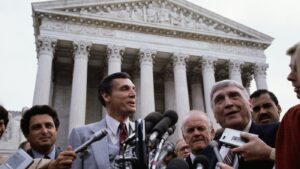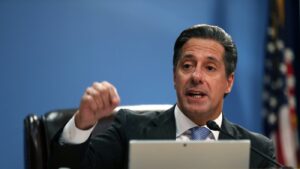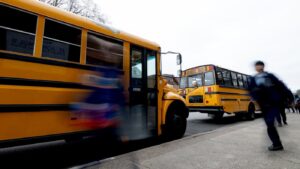Trump’s Executive Order Sparks Education Debate
In a move that has stirred intense debate across the nation, President Trump recently signed an executive order aimed at dismantling the U.S. Department of Education. This decision has prompted discussions about the future of education in the United States, with significant implications for state and local education authorities.
President Trump has directed Secretary Linda McMahon to “take all necessary steps to facilitate the closure of the Department of Education and return authority over education to the States and local communities.” Despite this directive, the department cannot be officially closed without congressional approval, adding a layer of complexity to the situation.
Former Education Secretary John B. King Jr., who served under President Obama, expressed concerns over this initiative. He emphasized the importance of the department in providing leadership, especially in addressing issues like chronic absenteeism. “The reality is we need the department to provide leadership in this moment,” King stated in an interview with NPR.
The executive order has also coincided with the detention of international scholars who have criticized Israel or expressed support for Palestinian causes. This has raised questions about freedom of expression in academic settings. King remarked, “It’s deeply troubling. We have a commitment in the United States to the First Amendment and to ensuring people have an opportunity to express their views.”
Concerns from the Academic Community
King highlighted the anxiety prevalent among university leaders who are worried about the implications of federal policy changes on research and student aid. “Everyone’s worried about the attacks on federal research,” he explained, noting how such measures could undermine the innovation economy and the federal student aid system.
King also mentioned his apprehension about the potential breakdown of the federal financial aid system. He underscored the role of Pell Grants in enabling low-income students to access higher education, stating, “If they’re not able to access that aid, they won’t be able to go to college.”
Debate on Education Department’s Role
With ongoing layoffs, the Department of Education’s size has significantly decreased since Trump’s tenure began. King worries about the impact on civil rights protections and the handling of discrimination complaints, given the reduced workforce.
The controversy extends to the department’s role in education policy. Although legally restricted from dictating what schools should teach, the department has been criticized for falling student performance levels. King argues that the focus should be on solutions like intensive tutoring rather than dismantling the department.
Implications of School Choice Expansion
The administration’s push for school choice, including private school vouchers, has drawn skepticism from King. He cautions that such measures may not improve student performance and could undermine public education’s role in fostering democracy. The risk, he says, is particularly acute in rural areas where options for private schooling are limited.
As the debate unfolds, the future of the Department of Education and its impact on students, teachers, and communities remains a critical issue for policymakers and educators alike.






